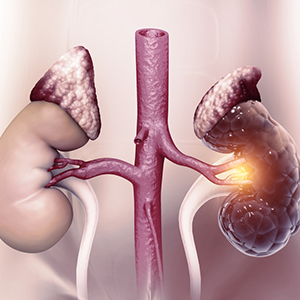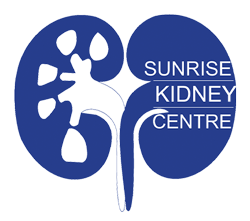Snakebite & with Renal Failure treatment in Vijayawada
The kidney, being highly vascularized, is particularly susceptible to venom-induced damage, with clinical signs emerging anywhere from a few hours to three days post-snakebite. Renal manifestations include flank pain, hematuria, hemoglobinuria, myoglobinuria, decreased urine output, and acute kidney injury (AKI). Additional complications may involve acute interstitial nephritis, proliferative glomerulonephritis beyond the capillaries, and cortical destruction. The mortality rate associated with snakebite-induced AKI can reach as high as 35%, although full recovery is often possible if the damage is limited to cortical necrosis or severe tubular injury accompanied by significant interstitial changes.
Renal failure and snake bite
Snake bites, particularly from vipers or other venomous species, can lead to renal failure primarily due to the hemotoxic effects of their venom, which can cause severe intravascular hemolysis, coagulopathy, and hypotension, ultimately damaging the kidneys. The venom's components may induce acute tubular necrosis by causing direct renal toxicity, microvascular thrombosis, or disseminated intravascular coagulation (DIC). Poison kidney failure treatment in Vijayawada encompasses of prompt administration of antivenom, supportive care, and renal support measures such as dialysis are critical in preventing or managing snakebite-induced renal failure. Sometimes not often a Cardio Renal Disease treatment in Vijayawada might also be required based on the diagnosis of the patient’s condition and history.

First response
Snake bite treatment involves immediate first aid, such as immobilizing the bitten limb and keeping the victim calm to slow venom spread. Remove tight clothing or jewelry near the bite, but do not cut or suck the wound. If possible, identify the snake from a safe distance for accurate treatment, but do not attempt to capture it. It is imperative to seek immediate medical attention by the best kidney specialist in Vijayawada.
Clinical treatment
Snakebite with renal failure treatment in Vijayawada treatment involves immediate assessment and stabilization, including immobilizing the bitten limb and keeping the victim calm to slow venom spread. Administering antivenom is crucial and tailored to the snake species if known. Supportive care such as pain management, wound cleaning, and tetanus prophylaxis are provided. Monitoring for signs of systemic toxicity like swelling, difficulty breathing, or neurological symptoms is essential. In severe cases, airway management and intravenous fluids are given to maintain stability. Prompt, specialized care under Dr. M.V. Sai Krishna at Sunrise Kidney Centre significantly reduces mortality and complications from snake bites, emphasizing the importance of rapid hospital intervention.

